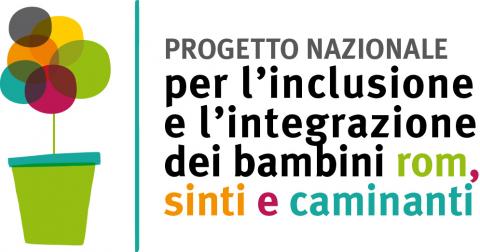
The National Project for the inclusion and integration of Roma, Sinti and Caminanti children is promoted by the Ministry of Labour and Social Policies in the framework of the actions of the 2014-2020 “Inclusion” PON (NOP – National Operational Programme) and is carried out in collaboration with the Ministry of Education, University and Research, the Ministry of Health and the Istituto degli Innocenti.
The Roma Sinti e Caminanti National Project (RSC), is promoted by the Ministry of Labor and Social Policies in collaboration with the Ministry of Education, University and Research and is placed within an institutionally shared framework, constituted by the National strategy for the inclusion of Roma, Sinti and Caminanti 2012-2020, from the Third National Biennial Plan of actions and interventions for the protection of the rights and development of subjects in developmental age, which provides for an entire line of action to the objective interculturality and integration of Roma children, and with the recommendations of the UN Committee on the rights of the child issued on 31 October 2011 (see points 25, 61 and 80), where a further effort is called for in the solution and eradication of inequalities and discrimination in access to education systems by Roma children.
The project aims to promote inclusion processes of RSC children and adolescents, promote the dissemination of good work practices and knowledge, enhancing local experiences, consistent with the objectives of the path, already activated in the participating territories and the projects carried out in the European countries for years engaged in the action of inclusion of the RSC, to build a network of collaboration between the 15 cities reserved for the National Fund for childhood and adolescence, established by law 285/1997, whose membership is on a voluntary basis.
The specific objectives of the project are:
- encourage school participation;
- strengthen professional training courses to facilitate job placement;
- promote access to services and in particular health pathways.
The path aims to enhance the experiences already underway in the cities to arrive at the experimentation of an approach and a methodology whose impact can be measured and objectified in order to favor its reproducibility and provides for the sharing of synergistic actions with the Ministry of '' Education, University and Research in the experimentation path of actions to support school attendance and educational success for the prevention of school dropout of minors, RSC and for the strengthening of pre-schooling project actions aimed at Roma populations for the promotion the use of socio-educational services for early childhood.
The project aims to work through activities that involve the two main areas of life of RSC children and adolescents: the school and the housing context (often the so-called "camp").
Starting from the experience and recognition of the great skills that the school has put in place in recent years to respond to the changed characteristics of users and social changes, the project aims to offer tools so that it becomes even more capable. to support the choices of RSC families to invest in education, to be more inclusive for all and to be a place of effective participation of all pupils and their families, specifically of RSC pupils and families. Particular attention is given to improving the school climate in its two components linked to the interaction between different subjects and to organizational and management elements of the class, focusing on tools such as cooperative learning, learning by doing and laboratory activities.
The work in the field or in the other housing contexts of children is aimed at integrating the objectives of academic success with those aimed at promoting the overall well-being of the child in relation to his family. The purpose of the activities is to strengthen the work carried out at school, but also to facilitate access to local services for the families involved and promote health protection paths.

